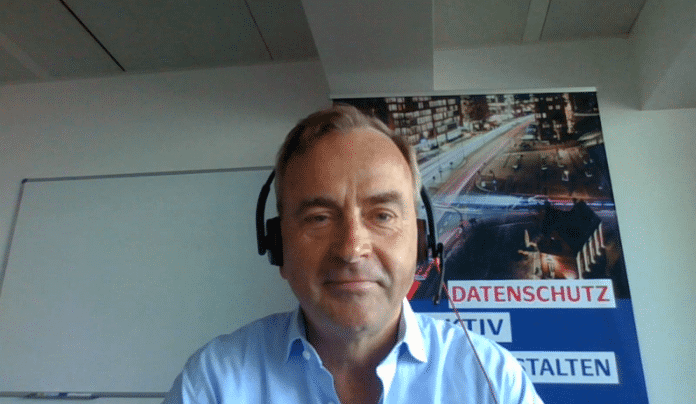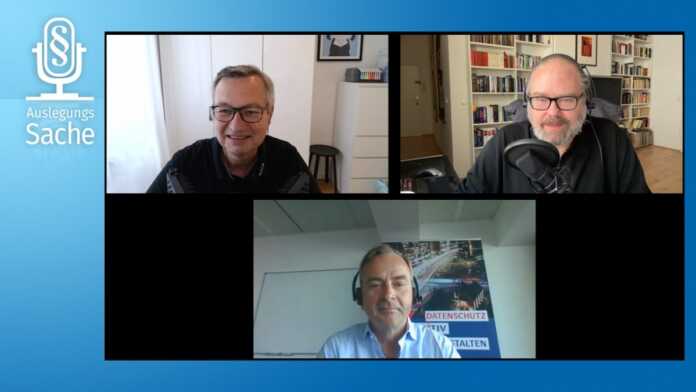In the c’t data protection podcast, Hamburg’s data protection officer, Thomas Fuchs, explains his “cooperative approach” and criticizes the planned EU data protection laws.
The Hamburg Commissioner for Data Protection and Freedom of Information (BfDI) is always in the public eye. Not only are the German branches of Meta Platforms (formerly Facebook) and Google subject to his supervision, but also a number of large German media houses, such as the Springer Group. It was therefore eagerly awaited last year who would follow the outgoing, long-standing BfDI Johannes Caspar.
In November 2021, the lawyer Thomas Fuchs took office after being elected by the Hamburg Parliament. Fuchs was previously the director of the media authority in Hamburg/Schleswig-Holstein for 13 years. He is therefore no stranger to the field of official supervision. In the current Episode 67 of the c’t data protection podcast, he talks about his first months as Hamburg’s top data protection officer.
collaborative approach

Fuchs emphasizes that he prioritizes a cooperative approach by his agency. In the past four years, data protection has mainly been perceived as the “sharp sword”, the threat of fines. But there is a great need for democratic data use, for example for research and mobility: “I would like to be involved from the start,” emphasizes Fuchs. As an example of failed regulation, he cites the plans for a vaccination register: “In the corona pandemic, we have a brutal lack of data. Many have said that a vaccination register does not work under data protection law. I would say that it would very well comply with data protection if it were clearly regulated who could access it may.”
Fuchs wants to continue the work of his predecessor: “We continue to deal intensively with Meta and Google, and we also have an influence on the decisions that are made in Ireland, however.” Fuchs is in good spirits that the Irish data protection authority, which is responsible for supervising the large tech companies in the EU, is currently tightening the reins. “A decision to transfer data from Facebook to the US, for example, is imminent.”
EU data laws: “A disaster”
The formulation of the EU data strategy gives Hamburg’s new BfDI stomach ache. Laws such as the Data Act or the Data Governance Act are “exciting and relevant” in and of themselves. But it is “simply a catastrophe” that they do not contain any exceptions to the GDPR, but are to be completely reconciled with it: “In the future, even more projects should not be tackled at all for fear of violating data protection law in some way .” The GDPR must be embedded in an internal market that also takes economic interests into account, otherwise it would not be sustainable.
c’t GDPR – What really matters in 2021

180 pages of advice from specialist lawyers: What companies, associations and the self-employed need to know! With many FAQs, instructions, checklists and samples. On DVD: 60-minute webinar “Anatomy of an IT disaster” – be prepared and master the crisis.
-
More information in the voonze shop: c’t know GDPR 2021
Episode 67:
Here are all the episodes so far:
- A matter of interpretation, the data protection podcast of c’t Magazin
(raised)













